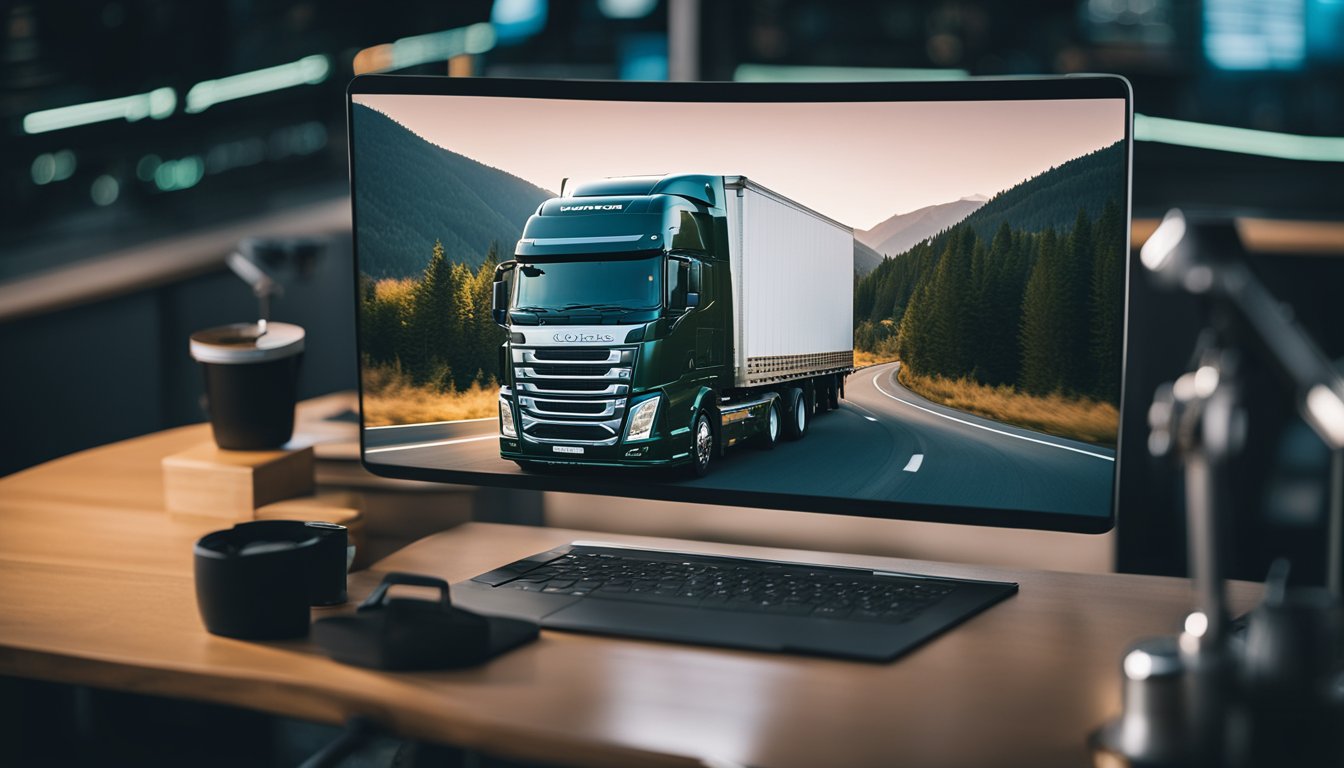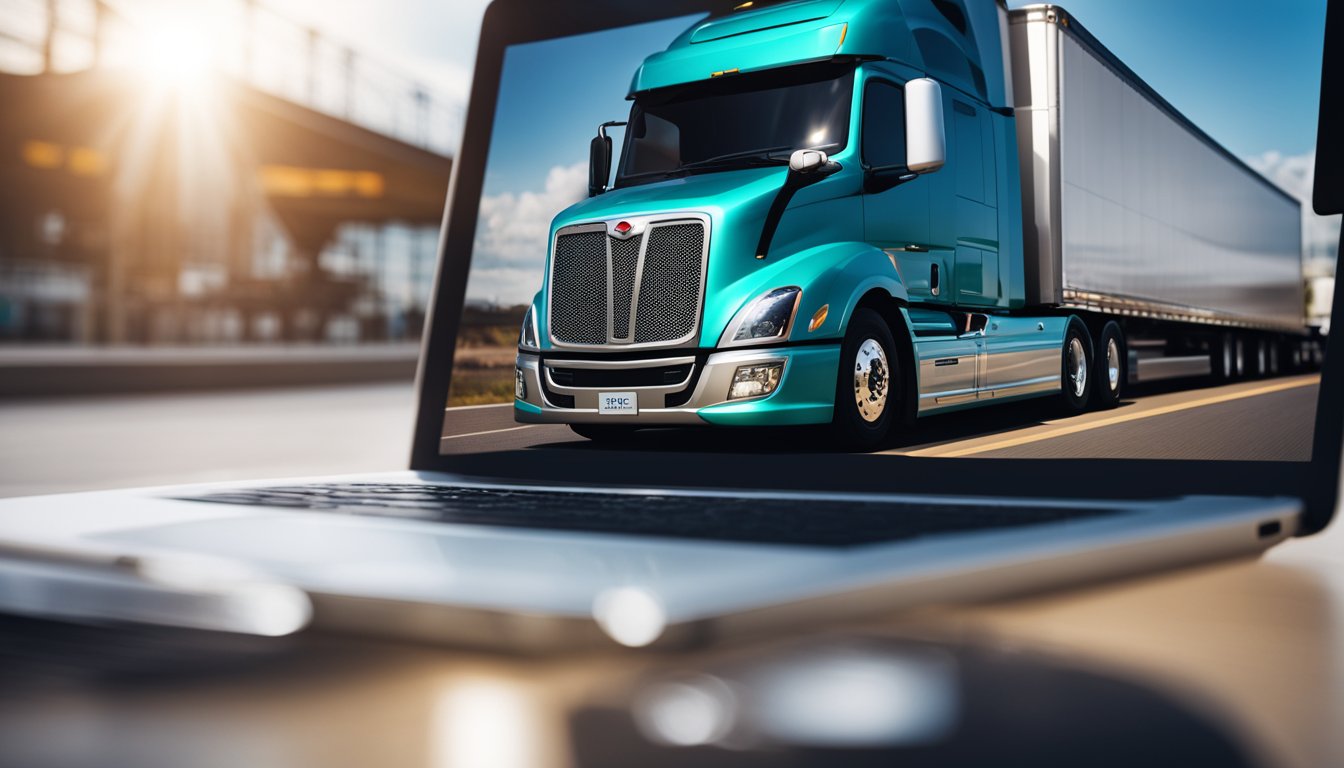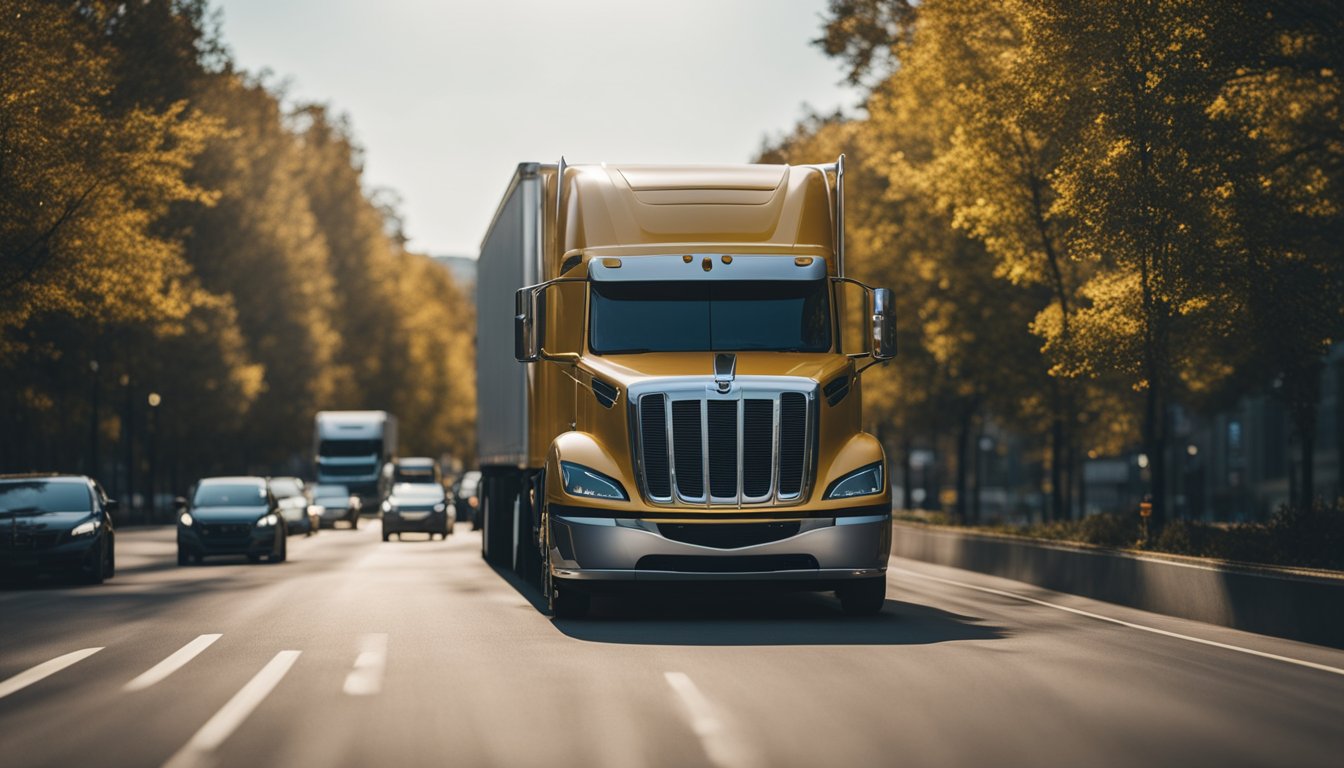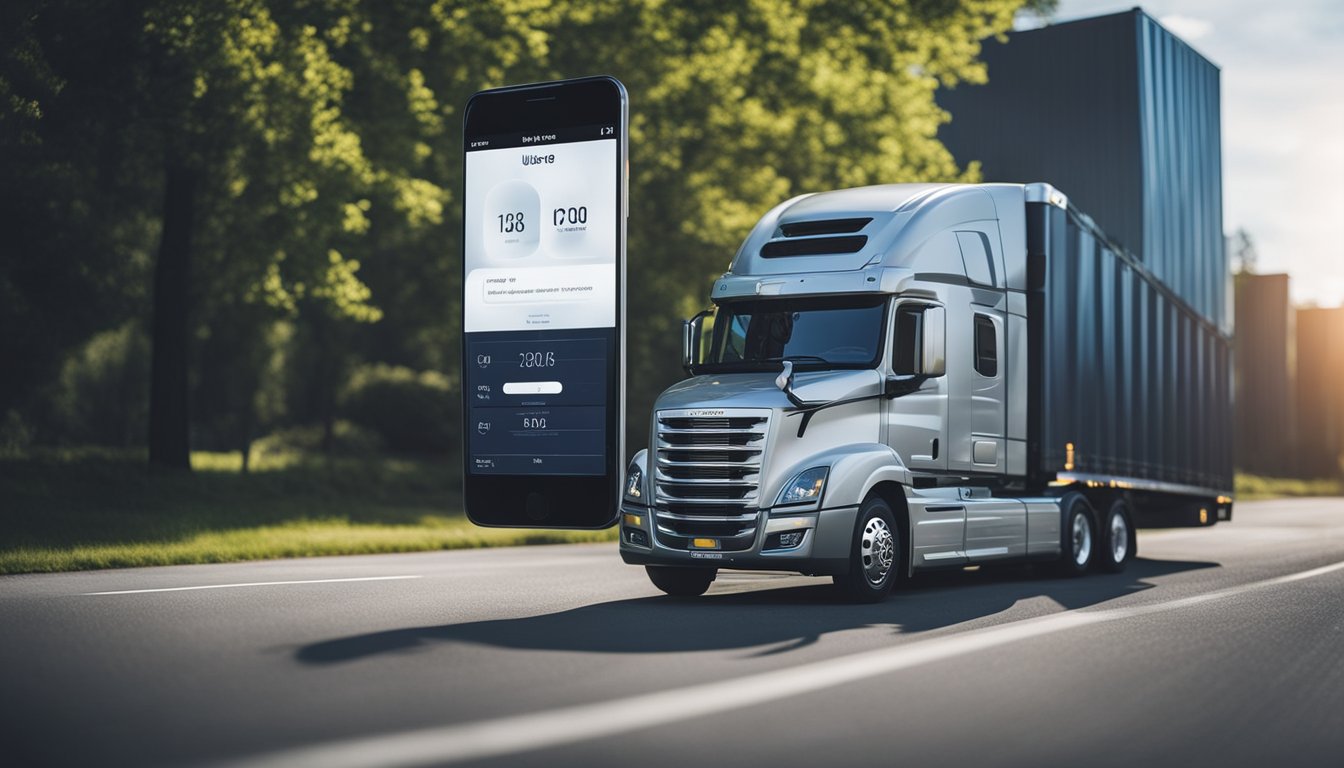
Truck Dispatch Software Uber for Trucking App Development Explained
Truck dispatch software has revolutionized the trucking industry by streamlining logistics and improving the efficiency of delivering shipments. With the advent of the Uber for trucking concept, trucking apps have become an essential tool for shipper
Truck dispatch software has revolutionized the trucking industry by streamlining logistics and improving the efficiency of delivering shipments. With the advent of the Uber for trucking concept, trucking apps have become an essential tool for shippers, carriers, and drivers. These apps offer a seamless platform for booking, tracking, and paying for shipments, making it easier for all parties involved to manage their operations.

Successful trucking apps have several features that make them stand out in the market. These include real-time tracking, automated dispatching, load matching, and driver management tools. By leveraging these features, trucking apps can help carriers optimize their fleet utilization, reduce empty miles, and improve their bottom line. Moreover, trucking apps can also help shippers find reliable carriers and drivers, track their shipments, and receive real-time updates on their delivery status.
In developing a trucking app, there are several challenges that developers must overcome, including regulatory compliance, data privacy, and cybersecurity. However, with the right solutions and technologies, these challenges can be addressed effectively. In this article, we will explore the Uber for trucking concept, the features of a successful trucking app, and the challenges and solutions in developing a trucking app.
Key Takeaways
- Truck dispatch software has revolutionized the trucking industry by streamlining logistics and improving the efficiency of delivering shipments.
- Successful trucking apps have several features that make them stand out in the market, including real-time tracking, automated dispatching, load matching, and driver management tools.
- Developing a trucking app comes with several challenges, including regulatory compliance, data privacy, and cybersecurity, but with the right solutions and technologies, these challenges can be addressed effectively.
Understanding the Uber for Trucking Concept

As the logistics and trucking industry continues to evolve, so does the concept of Uber for trucking. The idea behind this concept is to create an on-demand business model that connects shippers with carriers and drivers. This sharing economy approach is similar to the Uber model, where riders are connected with drivers. In the case of Uber for trucking, shippers are connected with carriers and drivers to transport cargo and freight.
The Uberization of Trucking
The term "Uberization" has become synonymous with the on-demand economy and sharing economy. The term refers to the disruption of traditional industries by technology-driven companies that create new business models. Uber for trucking is a prime example of this disruption. By using technology to connect shippers with carriers and drivers, the middlemen are eliminated, and the process becomes more efficient.
Key Players in the Market
There are several key players in the Uber for trucking market, including Uber Freight, Convoy, Doft, and Cargomatic. These companies have developed platforms that connect shippers with carriers and drivers, making it easier to transport cargo and freight.
Uber Freight is a dedicated app that matches carriers with shippers, streamlining the logistics process. Convoy uses machine learning to match carriers with shippers, ensuring that the right carrier is selected for each job. Doft is an on-demand truck sharing app that allows shippers to book truckers via mobile app with one-click technology. Cargomatic connects shippers with local carriers to transport cargo and freight.
In conclusion, Uber for trucking is a concept that is disrupting the traditional logistics and trucking industry. By using technology to connect shippers with carriers and drivers, the process becomes more efficient, and the middlemen are eliminated. With key players like Uber Freight, Convoy, Doft, and Cargomatic, the on-demand economy is transforming the freight industry.
Features of a Successful Trucking App

As a developer, I know that creating a successful trucking app requires careful consideration of the features that will make it stand out from the competition. Here are some of the key features that I believe are essential for a successful trucking app:
For Shippers and Drivers
-
Reliable Messaging: A reliable messaging system is essential for ensuring that shippers and drivers can communicate effectively throughout the shipment process. This includes features such as in-app messaging and push notifications.
-
Real-Time Tracking: Real-time tracking is crucial for ensuring that shippers and drivers can stay up-to-date on the status of their shipments. This includes features such as GPS tracking and real-time updates.
-
Matching Algorithm: A good matching algorithm is essential for ensuring that the right driver is matched with the right shipment. This includes factors such as load weight, recommended routes, and direct connections.
-
Automation: Automation is key for streamlining the shipment process and reducing the time and effort required by shippers and drivers. This includes features such as automated freight details, load weight calculations, and recommended routes.
-
Customer Experience: A good customer experience is essential for building trust and loyalty among shippers and drivers. This includes features such as a user-friendly interface, multiple payment options, and proof of delivery.
For Admins
-
Dashboard: A dashboard is essential for providing admins with an overview of the entire shipment process. This includes features such as shipment details, real-time updates, and proof of delivery.
-
Payments: A good payments system is essential for ensuring that shippers and drivers are paid promptly and securely. This includes features such as multiple payment options and automated payment processing.
-
Fleet Management: Fleet management is essential for ensuring that all vehicles are properly maintained and serviced. This includes features such as vehicle maintenance tracking and monitoring.
-
Registration: A good registration system is essential for ensuring that all shippers and drivers are properly vetted and registered. This includes features such as background checks and verification of insurance and licensing.
-
Admin Dashboard: An admin dashboard is essential for providing admins with an overview of the entire shipment process. This includes features such as shipment details, real-time updates, and proof of delivery.
In conclusion, a successful trucking app requires careful consideration of the features that will make it stand out from the competition. By focusing on features such as reliable messaging, real-time tracking, and automation, developers can create a trucking app that is both user-friendly and efficient.
Challenges and Solutions in Developing a Trucking App

Developing a trucking app like Uber for the transportation industry comes with its own set of challenges. In this section, I will discuss some of the major challenges and solutions that I faced while developing a trucking app.
Overcoming Logistics Challenges
One of the biggest challenges in developing a trucking app is overcoming the logistics challenges. The transportation industry is a complex one, and there are many factors to consider when developing a trucking app. For example, navigation is a key factor when it comes to transportation. A trucking app needs to have a reliable navigation system that can help drivers find the best routes to their destination. Additionally, the app needs to be able to handle different types of freight and cargo, as well as different modes of transportation, such as air, sea, and land.
To overcome these challenges, I focused on developing a mobile transportation system that could handle different types of freight and cargo. I also worked on developing a reliable navigation system that could provide drivers with real-time updates on traffic conditions, weather, and other factors that could impact their delivery times. By focusing on these key areas, I was able to develop an on-demand trucking app that could handle the complexities of the transportation industry.
Monetizing the App
Another challenge in developing a trucking app is monetizing the app. In order to make the app financially viable, it needs to be able to generate revenue. One way to monetize the app is by partnering with freight brokers. Freight brokers act as intermediaries between shippers and carriers, and they can help connect carriers with shippers who need their services.
Another way to monetize the app is by using on-demand business models. On-demand business models allow customers to request services as needed, rather than having to commit to long-term contracts. This can help attract more customers and generate more revenue for the app.
Finally, venture capital can be a great way to monetize the app. Venture capital can provide the funding needed to develop and market the app, as well as help attract more customers and partners.
In conclusion, developing a trucking app like Uber for the transportation industry comes with its own set of challenges. By focusing on key areas such as navigation, freight handling, and monetization, it is possible to develop an app that can handle the complexities of the transportation industry and generate revenue.
Frequently Asked Questions

How can I develop a truck dispatch software for my trucking business?
Developing a truck dispatch software for your trucking business requires a team of experienced developers who can understand your business needs and create a customized solution. The development process involves multiple stages, including requirements gathering, designing, development, testing, and deployment. It is important to choose a reliable development partner who can provide end-to-end solutions and support.
What are the top truck dispatch software solutions for the trucking industry?
There are several truck dispatch software solutions available in the market, each with its own set of features and benefits. Some of the top solutions include TruckLogics, Samsara, KeepTruckin, and Fleet Complete. It is important to evaluate each solution based on your specific business needs and budget.
Can the Uber model be applied to the trucking industry?
Yes, the Uber model can be applied to the trucking industry. The Uber for trucking app connects shippers with carriers and streamlines logistics to efficiently deliver customer shipments. The app offers benefits such as real-time tracking, automated dispatch, and transparent pricing.
What are the benefits of using a truck dispatch software for my trucking business?
Using a truck dispatch software can provide several benefits to your trucking business, including improved efficiency, increased productivity, reduced costs, and enhanced customer experience. The software can automate manual processes, provide real-time visibility into operations, and optimize routes to save time and money.
How does Uber Freight app differ from traditional trucking dispatch software?
The Uber Freight app differs from traditional trucking dispatch software in several ways. The app offers real-time tracking, instant pricing, and automated dispatch, providing a seamless experience for shippers and carriers. Additionally, the app provides access to a wide network of carriers and shippers, allowing for greater flexibility and efficiency.
What are the key features to look for in a truck dispatch software for my trucking business?
When choosing a truck dispatch software for your trucking business, it is important to look for key features such as real-time tracking, automated dispatch, route optimization, load management, and integration with other systems. Additionally, the software should be user-friendly and customizable to meet your specific business needs.




